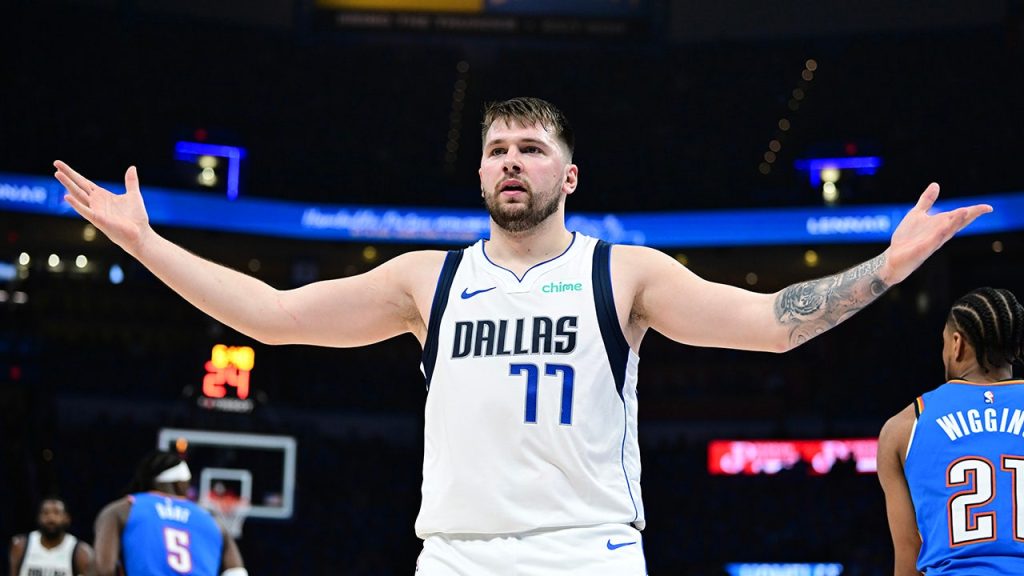The Dallas Mavericks executed a seismic trade, sending shockwaves through the NBA by parting ways with their young superstar, Luka Dončić. This move, unprecedented in its suddenness and magnitude, involved trading a perennial MVP candidate at the peak of his career, a decision that has left fans and analysts alike grappling with its implications. Dončić, just 25 years old and fresh off an NBA Finals appearance with the Mavericks, was widely considered the cornerstone of the franchise’s future. The trade, which sent Dončić to the Los Angeles Lakers, raises questions about the Mavericks’ strategic direction and the factors that led to this dramatic shift.
General Manager Nico Harrison, addressing the stunned public in the aftermath of the trade, cited concerns about the team’s defensive vulnerabilities as a primary motivator. While acknowledging Dončić’s undeniable offensive prowess, Harrison emphasized the need for a stronger defensive presence, a void he believes will be filled by the acquisition of Anthony Davis, a renowned defensive stalwart. Harrison framed the trade as a move to bolster the team’s chances of winning both in the present and the future, asserting that making tough decisions is part of his responsibility as general manager. This explanation, however, fails to fully address the magnitude of trading a player of Dončić’s caliber.
Beyond the defensive considerations, the looming contract negotiations with Dončić played a significant role in the Mavericks’ decision-making process. Dončić’s existing $207 million extension was nearing its expiration, and he was poised to command a supermax contract exceeding $340 million. Furthermore, the prospect of Dončić opting out of any future deals added another layer of complexity and uncertainty for the Mavericks. Harrison acknowledged the team’s desire to preemptively address this potentially tumultuous situation, stating that they wanted to avoid a bidding war for Dončić’s services. The Mavericks’ front office clearly felt the pressure of other teams vying for Dončić’s signature once he became a free agent.
Rumors of discontent within the Mavericks organization regarding Dončić’s conditioning further fueled speculation about the underlying reasons for the trade. While these rumors remain unsubstantiated, they contribute to the narrative of a growing rift between the player and the franchise. The combination of defensive concerns, looming contract negotiations, and potential internal friction created a perfect storm that ultimately led to the Mavericks’ decision to part ways with their star player. The trade represents a calculated gamble, with the Mavericks hoping that the acquisition of Davis and future draft picks will outweigh the loss of Dončić’s generational talent.
The trade details reveal a complex multi-team transaction involving the Mavericks, the Lakers, and the Utah Jazz. The Lakers received Dončić, Maxi Kleber, and Markieff Morris, while the Mavericks acquired Anthony Davis, Max Christie, and the Lakers’ 2029 first-round pick. The Utah Jazz, playing a facilitating role in the trade, received Jalen Hood-Schifino and two second-round picks. This intricate arrangement reflects the significant logistical and financial considerations involved in orchestrating a trade of this magnitude. The involvement of a third team, the Utah Jazz, underscores the complexity of balancing salaries and draft assets to satisfy all parties involved.
Dončić’s departure leaves a gaping hole in the Mavericks’ roster, as he led the league in scoring last season with an impressive 33.4 points per game. His career averages of 28.6 points, 8.7 rebounds, and 8.3 assists solidify his status as one of the league’s premier players. The Mavericks are essentially gambling that Davis can replicate, or at least approximate, Dončić’s offensive production while simultaneously elevating their defensive performance. While Davis is a formidable player, his injury history presents a significant risk for the Mavericks. The trade marks a turning point for both franchises, with the Lakers acquiring a generational talent and the Mavericks embarking on a new era with a revamped roster and a renewed focus on defense. Only time will tell whether this bold move will pay dividends for either team.

